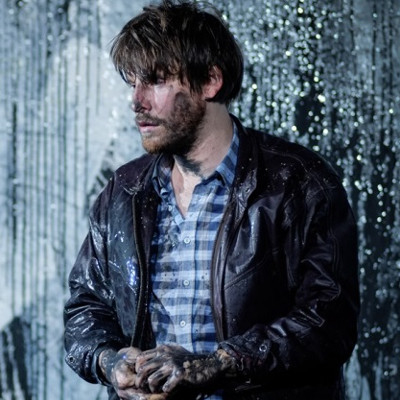An Enemy of the People (Barbican Theatre)

© Arno Declair
If you thought Richard Jones’s production of this great Ibsen play was a masterpiece of grunge and grime at the Young Vic last year, you should cut along quick to catch this overwhelming assault course of a revival by Thomas Ostermeier and his Schaubühne Berlin company.
The idea that the spa town’s economic future has been threatened by the doctor’s discovery of bacterial infection in the water supply is expanded to define the state of decline and desperation in the society at large.
Doctor Thomas Stockmann and his friends play angry, rancid rock music (including David Bowie’s "Changes"). His own brother, the mayor – here relegated to mere membership of the city council – has the hots for his wife (and she for him). And the fate of the spa – "the hope that springs in thermals" as the Young Vic had it – becomes an issue of the doctor’s individual political conscience.
Unfortunately for him, this conscience is compromised by the family involvement in the business. His father-in-law, Morten Kiil (Thomas Bading striding around in tweeds with a large Alsatian dog on a leash), owns the majority of shares in the infected tannery, and is leaving them to the family in his will.
So, the play ends not with Ibsen’s doctor starting defiantly, and independently, from scratch, opening a new school, railing against the ignorant, but with Ostermeier’s doctor (a brilliant, complex performance by Christoph Gawenda) considering his position, as they say, and holding both his wife’s gaze and the papers that come between them…
It’s a powerful and resonant statement of guilt by association and pragmatic resolution, and it follows the fourth act public meeting which is here opened up to the audience like some nightmarish free-for-all on the BBC’s Question Time. After a couple of awkward plants, the audience is encouraged to join in and demonstrate the truth of the doctor’s assessment of their stupidity, shouting out about the Scottish referendum, Boris Johnson, bias in the media, anything they like.
One voice called for Ibsen to come back – "all is forgiven" – another, that we should trust the intellectuals, not the politicians. Ibsen’s unfashionable point about the virtue of individualism in a liberal society of complete suffrage could not have been better made. And then the doctor gets seriously paint-bombed and has to go home and start boarding up the windows, covering them with huge brush strokes.
Florian Borchmeyer’s version of Ibsen drops a couple of major characters and of course presents it entirely in a contemporary European context of spiritual dismay and political pessimism. It’s nonetheless a poetic and utterly truthful approach to Ibsen, and an exciting and provocative theatrical "event" on its own terms.










